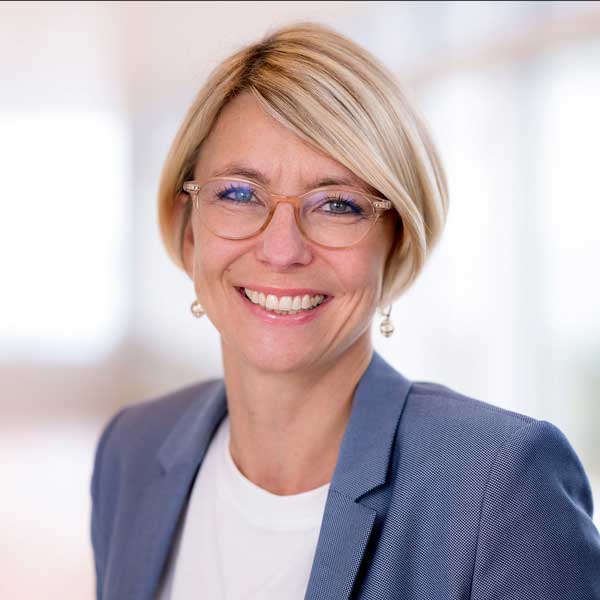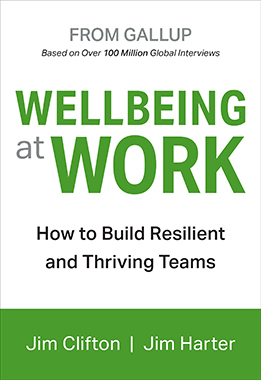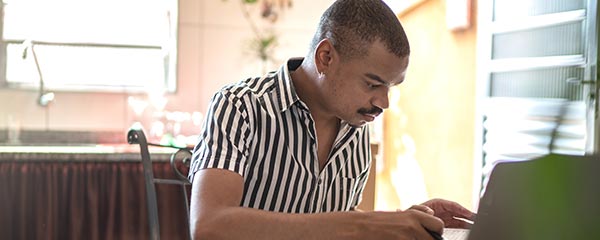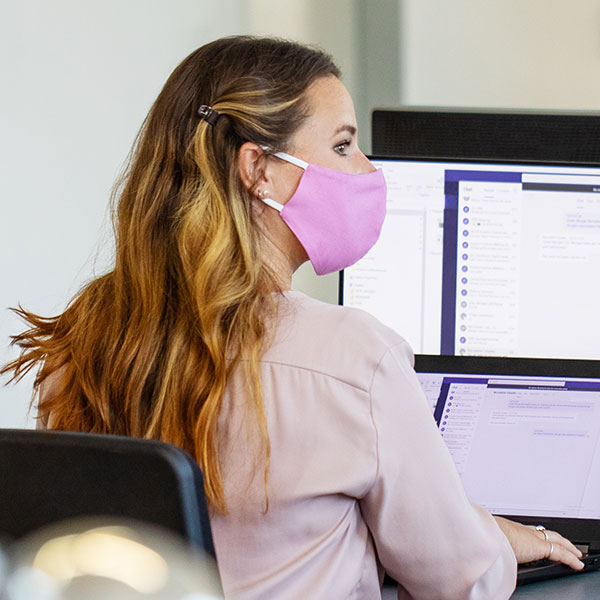A Conversation With Daniela Seabrook

Daniela Seabrook
Chief Human Resources Officer for Philips
CliftonStrengths Top 5: Learner | Achiever | Arranger | Includer | Individualization
Dr. Daniela Seabrook, CHRO for global health technology company Philips, trained as a clinical psychologist. That's an unusual background for a CHRO, and she thinks it's made her colleagues unusually open about their mental wellbeing -- a practice she thinks companies should invite.
"The implications of health and wellbeing became quite clear throughout the pandemic," she says, "but they've always had a big impact on how people feel, on whether they can be themselves at work, and ultimately that has a big impact on business outcomes."
But mental health issues are surrounded by biases, which causes many employees to mask the cracks in their wellbeing -- at the cost of their performance. "It takes a great deal of energy for people to portray themselves as someone they are not," Seabrook says.
Philips' purpose is to improve people's health and wellbeing. So, as Seabrook relates in the following CHRO Conversation, she hopes that mental illnesses will soon be viewed like any other wellbeing issue -- and that employees can be as open with each other as they are with her.
Emond: How does your background in clinical psychology fit Philips' purpose?
Seabrook: We are a health tech organization, and we strive to improve people's lives around the world. We believe that we need to start with our own people. Care is in our DNA, and health and wellbeing are core traits to us as an organization. So we want people to feel safe disclosing, if they want, that they're suffering from mental illness. It's part of our future-of-work and inclusion approach as well. And we're putting more emphasis on preventing poor mental wellbeing from a work perspective. A big part of that is creating an environment in which people can speak up and be themselves, where they don't have to pretend.
Emond: How did the pandemic inform Philips' approach to mental wellbeing?
Seabrook: The pandemic opened every leader's eyes to mental health issues. I think we at Philips have done quite a bit to support employees' physical wellbeing, and we now have new aspirations in the mental health space. We really want to get there because health is at the core of who we are. We want to be the best place to work for those who share our passion about health, about personal development, about inclusion and diversity. Our interest in mental wellbeing is part of that -- it's important that an individual can come to work at Philips and feel that you can be yourself and be respected for who you are. And given how leaders everywhere showed so much vulnerability during this pandemic, were so honest about what they struggled with as leaders, I think organizations are seeing more openness to disclosing mental wellbeing issues, but also to understanding the biases around mental illnesses.
So we're raising awareness, for the people experiencing unwellness -- and everyone else -- to say what they need to be mentally healthy and well. Mental health and wellbeing are important to everyone, but from an organizational perspective, they're relevant to our people, to a great employee experience, to a great customer experience, to business growth, etc. Perhaps because of my role and my background, a lot of people throughout my career have disclosed their mental health issues to me -- burnout, as you might expect, but also issues you would not think are linked to work, such as anxiety disorders or depression. You wouldn't probably see those things from outside because people put in a great amount of energy to mask them. But these problems affect many people. That's something I'm very conscious about. The implications of health and wellbeing became quite clear throughout the pandemic, but they've always had a big impact on how people feel, on whether they can be themselves at work, and ultimately that has a big impact on business outcomes.
Emond: Such as healthcare costs?
Seabrook: Yes, but also opportunity costs, which are quite enormous, as well as the misapplication of energy. It takes a great deal of energy for people to portray themselves as someone they are not. So I'm very interested in creating a business environment that allows people to be themselves and disclose, if they want to, how they are. But I've always been quite keen on promoting organizational mental health, as you would expect with my background.
Emond: How did Philips support employees with their mental health before the pandemic?
Seabrook: Pre-pandemic, I would say our approach was not systematic. We had employee assistance programs in pieces and pockets, and of course, every HR leader would reach out to people who said they needed help, but we didn't have what I would call a broad company perspective. That changed last year. A few weeks into the pandemic, we started rolling out assistance programs worldwide in all the markets. We've seen a big uptake, particularly in counseling linked to isolation, uncertainty about the future and feeling overwhelmed. And we did two additional employee surveys during the pandemic specifically asking how people feel.
We saw a variety of emotions, including isolation, sadness, anxiety, all of that. We also asked if they feel supported by their leaders, what more they need from the company, etc., which are questions we'll continue to ask. But lately, as you would guess, those negative emotions were quite prevalent, and we're in the process of becoming more systematic about creating an environment that enables people to speak up, that helps employees identify when someone isn't well. We're also investigating how we can offer broader employee population health checks. Not just the standard health measurements like blood pressure, but advisory counseling from a lifestyle and prevention perspective as well.
Emond: How are you handling leadership and manager awareness of mental health issues?
Seabrook: Providing mental health wellbeing support requires emphasis and leadership training programs -- some of it through the inclusion front -- about mental health. And for that, of course, we also need leaders to speak up. One thing is helping leaders learn to identify mental health issues and have more open dialogues. We've done a pilot version, though we want to broaden it to all the leadership programs, that links wellbeing to resilience, that teaches leaders how to approach continuous feedback dialogues, how to help people to speak up. That dialogue affects how people engage, how they contribute and how they grow. Leaders need dialogues deeper than asking "How are you?" and then moving on. It's a form of preventive care.
Emond: And most leaders don't have the clinical background that you do.
Seabrook: Yes. And these conversations can have a huge impact on the leader personally. And that leader affects the entire team as well. So we want to approach this properly, to look into leaders' personal beliefs and the drivers of their behavior. A leader who really struggles to show vulnerability, for example, may find it very hard to open up with their team. Someone who actually likes open dialogue but is worried about the career implications of having them, who is concerned that they will not be perceived as a strong performer, will have a different impact on the team. And all leaders will have less energy to give to the team if they're occupied a lot with themselves. So we're working on an approach to that, to being able to be open and then also absorb how other people feel.
Emond: "Career implications" -- tell me how you see that.
Seabrook: It is about helping leaders overcome biases around mental illness by being more conscious of them. But I want to point out that people with illnesses can be very resilient. Resilience has a lot to do with having good coping mechanisms, good emotional situations and good social environments. The context of illness is multifaceted; it's not just the mental state you're in. You can have a mental illness and be in a good emotional and social state. And if you have medication that works well, you can live a very balanced life. But without those mechanisms, you can pay quite a high energy price that others wouldn't see from the outside.
Emond: You mentioned that you're helping managers identify mental health issues earlier on, as preventive care. Is that to help provide those mental health mechanisms?
Seabrook: We aren't quite there yet, to be honest. Right now, it's more about supporting managers and helping educate leaders, from an HR perspective, about mental health issues such as burnout -- which can be difficult for managers and leaders to navigate. People don't always disclose that they're taking time off because they experienced burnout. Sometimes employees describe the experience by other symptoms, such as panic attacks, so an organization may not know the real number of cases. But it's important for managers to keep people on leave for burnout connected with the company and the leaders. That's why we have case managers who help the employee and manager through the whole phase of the sickness and with the employee's reintegration. Along with HR, the case managers help the leaders to restructure the role so that the person comes back in phases -- half time the first few weeks, rising slightly over time, with work redistributed.
Emond: This is uncomfortable territory for some leaders.
Seabrook: Well, at Philips, our purpose is to improve the health and wellbeing of people every day … 2.5 billion lives by 2030. That's what we stand for, and that's what energizes our people around the world. That purpose starts with ourselves. We believe we have a triple duty of care: taking care of our own people, our customers and our business. Not in a paternalistic way, but by doing whatever we can to create an environment of care. I think our leaders have successfuly lived up to that. I knew the concept of that triple duty of care stuck with our people because it links to our purpose and who we are. And I know the fear of biases is what holds organizations back. So we're asking questions about employees' emotional state that we've never asked before. We'll keep asking because, for all the really bad things the pandemic led to, it made discussing mental illness more acceptable. Everyone started to realize that psychological wellbeing is really important and that it has an impact on performance. Getting that awareness is a good thing. We just need to keep it.
Explore other CHRO conversations:
- Thermo Fisher Scientific CHRO Lisa Britt
- IBM CHRO Nickle LaMoreaux
- Standard Chartered Bank Group Head of Human Resources Tanuj Kapilashrami
- Zurich Insurance Group CHRO David Henderson
- AT&T CHRO Angela Santone
- Merck KGaA CHRO Dietmar Eidens
- Eli Lilly Senior VP of HR and Diversity Steve Fry and Chief Diversity Officer Joy Fitzgerald
- Schneider Electric CHRO Olivier Blum
Jennifer Robison contributed to this article, which was based on an interview conducted by Larry Emond.



